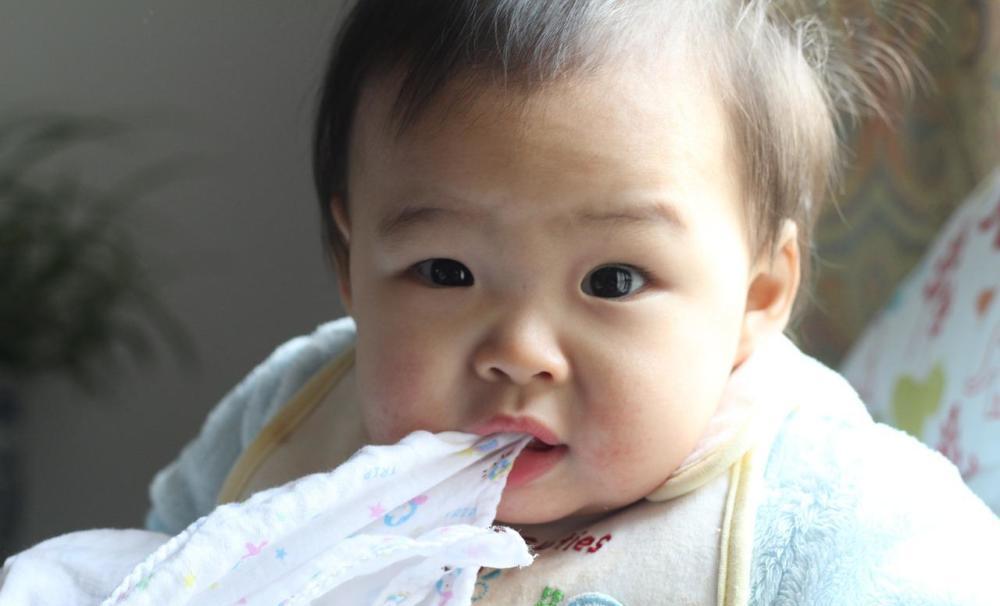We always feel that bad breath is the patent of adults, in fact, children will also have bad breath. When the child's mouth is no longer a good smell of milk or fresh breath, but a strange sour smell, as a mother, the subconscious reaction is that the child is on fire, or indigestion.

So what is the reason?
Oral hygiene is not in place
The vast majority of bad breath comes from the mouth. Microorganisms in the mouth will use food residues, shedding epithelial cells, blood, gingival fluid, plaque and other substances to produce a large amount of odor, resulting in bad breath.
If the child does not clean the mouth after eating, then the milk and food residue will remain between the teeth, periodontal and other parts, mixed with bacteria and saliva in the mouth, and will produce a foul smell over time.
To eliminate these odors, parents should help their children or let their children brush their teeth well, clean their tongue and use floss.
Children under 1 year old who have already teethed can clean their mouths with a baby toothbrush. If there are no teeth, mothers can use gauze wrapped around their fingers to help the baby clean, or after feeding, feed the child some warm water.
After your child teeth, remember to brush his teeth every morning and before going to bed, and use fluoride toothpaste to help your child clean his teeth and tongue thoroughly. Remember: brush for 2 minutes at a time.
The dosage of fluoride toothpaste is: 0-3 years old with the size of a grain of rice, and over 3 years old with the size of a soybean.
In addition to brushing your teeth morning and evening, after each time your child eats, you can give your baby a few sips of boiled water or teach your baby to rinse his mouth to keep his mouth clean.
Your child's mouth is dry
Saliva can help clean the mouth. When saliva is flowing, it can help us flush out dirty things like food scraps, microbes, and old oral mucosal cells in the mouth.
If the cleaning is not done in time, an unpleasant odor will occur in the mouth.
The child is always idle for a moment, easy to sweat when active, resulting in dry mouth, if you do not add water to him in time, it will lead to insufficient saliva secretion, causing dry mouth.
Therefore, when parents find that their children sweat too much, they should help their children replenish their water in time and keep their children's mouths moist.
Gastroesophageal reflux
This reason is more common in small babies.
So what is gastroesophageal reflux? It means that the food that the baby eats into the stomach and returns to the mouth through the esophagus. To put it bluntly, what you eat is spilling over again.
Because the food eaten has been mixed with stomach acid and some secretions, it will have a taste after reflux, causing the baby to have bad breath.
Mothers should pay attention to making the baby's head high and low when feeding, avoid exercise after milk, and remember to burp after feeding the younger baby, which can also effectively prevent gastroesophageal reflux.
Tooth decay and other oral problems
If your child has oral problems such as tooth decay and gingivitis, it can also cause bad breath.
The small black holes in the tooth decay will leave food, which is not easy to find and easy to remove. Over time, it will produce an unpleasant odor.
We parents should often remind our children to eat less sugar and pay more attention to oral cleanliness. At the same time, do not be afraid of trouble, it is best to take your child for an oral examination every six months, and treat caries or other problems in time.
It is related to respiratory problems
Situations such as chronic rhinitis, sinusitis, tonsillitis, etc., basically have traces of bacterial infection, and also produce an unpleasant odor.
However, if the above diseases occur, in addition to bad breath, children will generally have other external manifestations, such as increased nose secretions, nasal sounds in speech, breathing with open mouth, sleep snoring, etc. At this time, parents need to take the baby to the doctor in time to find out the cause.
Of course, some children's rare diseases, such as advanced liver disease, kidney disease, diabetic ketoacidosis, etc., may also lead to bad breath, parents should also take their children to medical treatment as soon as possible after finding abnormalities.
Final highlights:
If you want to prevent your child's bad breath, the most important thing is to maintain your child's oral hygiene: brush your teeth well, clean your tongue and use floss.
In addition, in ordinary life, we should pay attention to drinking more water and paying attention to eating habits, such as eating less sweets and fried foods.
Also, don't be afraid of trouble, remember to take your child to the dental check-up regularly, and if you have tooth decay, you need to treat it immediately.
If you have done all of the above, and you still have bad breath, you should go to the hospital for examination to see if it is caused by some disease or other conditions.